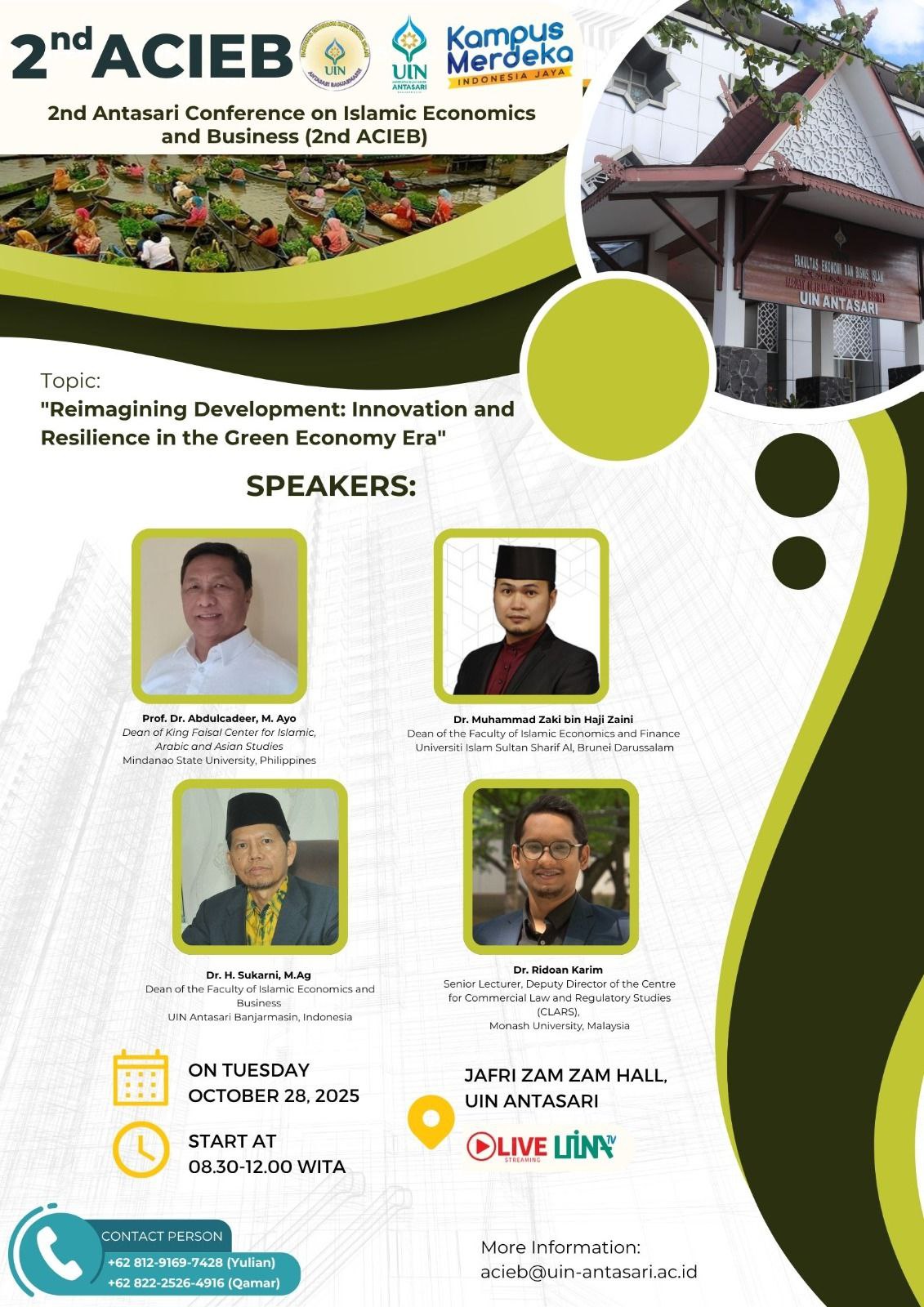Comparative Analysis of Independent Small Businesses and Franchises in Banjarmasin City
Keywords:
Small independent businesses, Local Entrepreneurship, FranchisingAbstract
This study aims to analyze the comparison between independent small businesses and franchises in Banjarmasin City in the context of management strategies, strengths, weaknesses, and development potential for the regional entrepreneurial ecosystem. The research approach uses a qualitative descriptive method by utilizing secondary data obtained from previous studies, reports, and scientific publications related to MSMEs and franchises in Indonesia. The results show that independent small businesses have the main characteristics of high flexibility, innovation based on local culture, and social proximity to consumers. These advantages enable independent small businesses to adapt to local market needs, despite facing limitations in capital, financial management, and access to digital technology. Meanwhile, franchises offer a stable business system with brand support, training, and clear operational standards. However, this model limits the scope for innovation for business actors and incurs license and royalty costs that can reduce profit margins. In the context of Banjarmasin, small businesses are more prominent in developing local products and preserving regional cultural values, while franchises are the choice for young entrepreneurs who want to run a business with a ready-made system and lower risk. This study concludes that both business models have complementary strategic values: small businesses excel in creativity and local adaptation, while franchises excel in efficiency and system stability. Therefore, synergy between local innovation and modern managerial systems is expected to strengthen the entrepreneurial ecosystem and drive regional economic growth in the city of Banjarmasin.References
Adriel, I., Makatiningrum, & Sanny, L. (2021). The Impact of Satisfaction and Environmental Uncertainty on Commitments Mediated by the Franchisee’s Trust. International Conference on Reccent Inovation.
Anggraeni, F. D., Hardjanto, I., & Hayat, A. (2019). Pengembangan Usaha Mikro, Kecil, Dan Menengah (Umkm) Melalui Fasilitasi Pihak Eksternal Dan Potensi Internal . Jurnal Administrasi Publik, 1286-1295.
Hirchs, & Peter, S. (2008). The Ddeterminal Factors of Entrepreneurial. Journal Publishing Economics.
Laksmana. (2024). Strategi Pengembangan UMKM Kota Batu, Jawa Timur.
Nawy, E. (2009). Reinforced Concrete A Fundamental Approach.
Nurwanti, Rosita, M., & Chainaris, N. W. (2022). Program Pengembangan Usaha Mikro Kecil Dan Menengah (Umkm) Dalam Upaya Peningkatan Ekonomi Masyarakat Kadokan. Jurnal Pengabdian Pada Mayarakat, 137-147.
Prihandono, Wijayanto, A., & Cahyaningdiyah, D. (2021). Franchise business sustainability model: Role of conflict risk management in Indonesian franchise businesses. Bussines Prespectives.
Prihandono, Wijayanto, A., & Cahyaningdyah, D. (2021). “Franchise business sustainability model: Role of conflict risk management in Indonesian franchise businesses. Problems and Prespective Management.
Putra, A. R. (2022). Ethical Fondations of Franchisor-Franchise Relationship.
Rahmawati. (2020). Analisis Model Binsis dalam Pengembangan Kewirausahaan di Indonesia. Jurnal Manajemen dan Kewirausahaan, 146-156.
Tambunan, T. (2019). Recent evidence of the development of micro, small and medium enterprises in Indonesia. Journal Of Global Entrepeneurship.
Yolanda, C., & Hasanah, U. (2024). Peran Usaha Mikro, Kecil Dan Menengah (UMKM) Dalam Pengembangan Ekonomi Indonesia. Jurnal Manajemen dan Bisnis.

